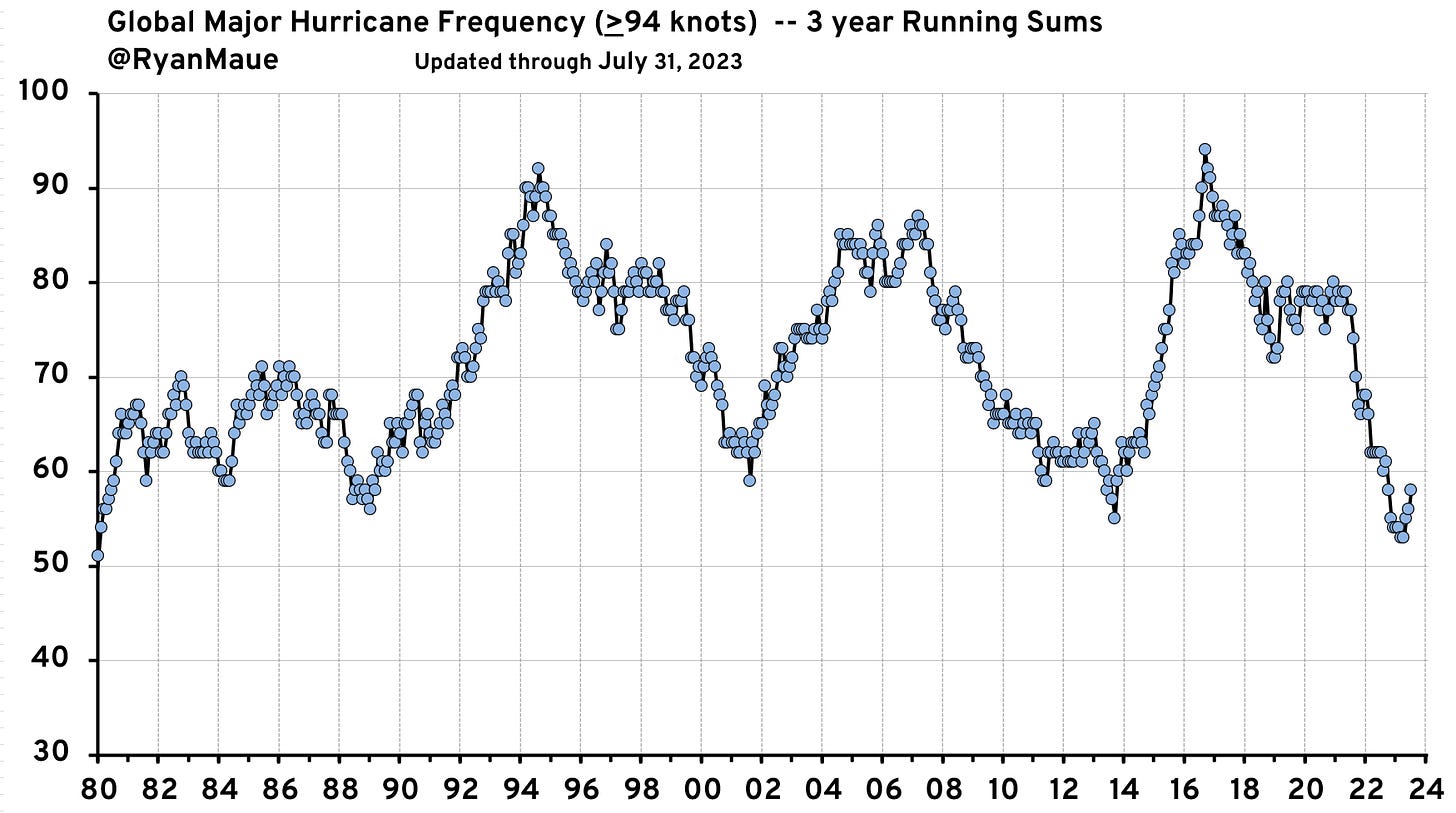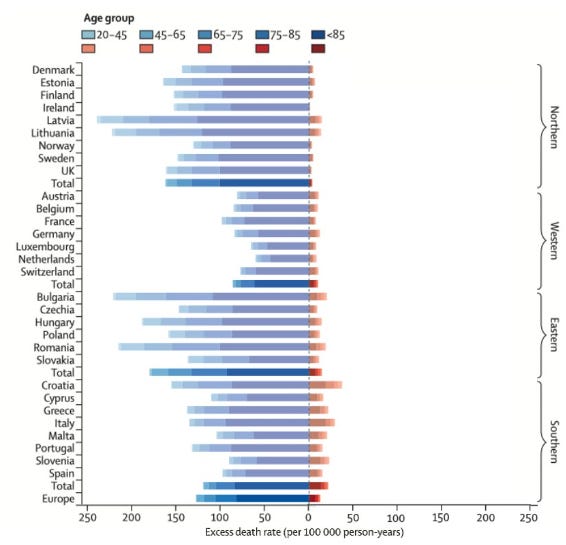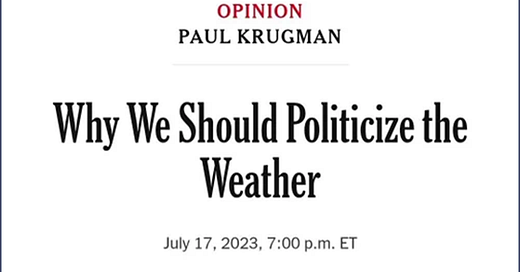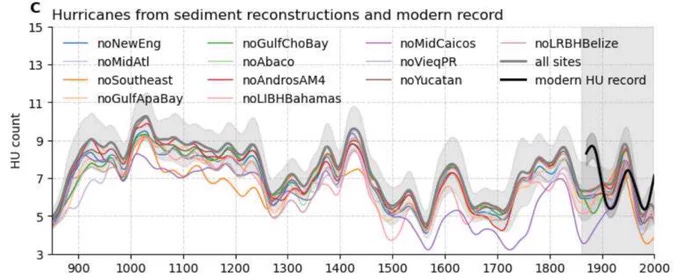I’m starting my transition from sabbatical back to being on campus. It has been a rewarding and productive year, and I’m excited to be back. Today I will see for the first time my new office on campus — I’ll post some pictures.
There is lots going on here at THB. This fall I’ll start publishing some guest posts from a range of smart contributors with a diversity of expertise and experiences, including more climate science posts from my Dad (forcings and feedbacks are up next). The next chapter in The Climate Fix book club is scheduled for next week. And man, do I have a lot to write on.
Below are some vignettes related to climate that I found interesting, but are not worth a full post. Please do keep your comments, suggestions and tips coming — I learn a lot every day from THB readers!
Preparing for Hurricane Hype with Actual Data
You won’t know about this unless you follow @RyanMaue on Twitter, but the past three years have seen historically low counts of tropical cyclones of major hurricane strength, as you can see in Maue’s figure below. As we enter the historically busiest part of the Atlantic hurricane season, get ready for every whirl in the ocean to be hyped by media.
Here is the truth: Are more of the strongest storms happening around the world?
No. Read more here.

Atlantic Hurricane Paleotempestology
A new pre-print by Elizabeth Wallace and colleagues takes much longer look at North Atlantic hurricane activity, building off of storm proxies — an area of study with the delightful name, paleotempestology (coined by Kerry Emanuel if memory serves). You can see their estimates of historical hurricane activity below, indicating large variability and many centuries with much greater activity than in our lifetimes. Interesting research!
ESG Ratings Don’t Mean Much
From the Financial Times we learn that ESG ratings don’t really mean much at all:
“Companies rated highly on widely accepted environmental, social and governance metrics pollute just as much as lowly rated companies, research has found.”
I’m shocked.
The “Iron Law” is Alive an Well in Uxbridge
In today’s Financial Times Janan Ganesh has an excellent column on the meaning of the recent Tory victory in the Uxbridge by-election:
This, I think, is the argument that a future Tory leader will make, and to great electoral effect: “Human-induced climate change is real and terrible. Don’t mistake us for denialists. But this is a medium-sized, post-industrial nation that accounts for around 1 per cent of the world’s greenhouse gas emissions. The ecological future of the Earth rests on giant middle-income countries, not on us.
“We should decarbonise. It would be weird to abstain from a technological crusade that America and the EU are going to make sure happens regardless. Britain has already committed a fortune in sunk costs. But a rush to net zero? That will cost you, dear voter, in ways that we politicians have obfuscated in the past. And what will that cost achieve? Not a material dent in the climate problem, but the setting of a moral example, as though India and China set their watches by us. Liberals forever accuse us on the right of overrating Britain’s sway in the world. Well, look who is grandstanding now.”
The “iron law” is exactly that and those of us pushing for climate policy need to always remember that deep decarbonization will never occur via austerity or sacrifice. Climate policy must be pragmatic if it is to ever succeed. We are not going to just stop oil. But we can make progress on decarbonizing the economy. Why do we have to keep learning about the “iron law” over and over?
I’d Like to Report a Chart Crime
The Lancet was caught red-handed publishing a figure that, to be as fair as possible, lent itself to misinterpretation (it was first called to my attention by Bjorn Lomborg and is in a paper by Masselot et al. 2023).
Take a look and decide for yourself. Here is the original figure comparing mortality from cold (blue) and heat (orange) in Europe from 2000-2019.
And here is how it looks when the data is graphed using a consistent scale.

Do Researchers Increasingly Exaggerate the Significance of their Work?
Perhaps related … via Science:
Careful scientists know to acknowledge uncertainty in the findings and conclusions of their papers. But in one leading journal, the frequency of hedging words such as “might" and "probably" has fallen by about 40% over the past 2 decades, a study finds.
If this trend holds across the scientific literature, it suggests a worrisome rise of unreliable, exaggerated claims, some observers say. Hedging and avoiding overconfidence “are vital to communicating what one’s data can actually say and what it merely implies,” says Melissa Wheeler, a social psychologist at the Swinburne University of Technology who was not involved in the study. “If academic writing becomes more about the rhetoric … it will become more difficult for readers to decipher what is groundbreaking and truly novel.”
The new analysis, one of the largest of its kind, examined more than 2600 research articles published from 1997 to 2021 in Science, which the team chose because it publishes articles from multiple disciplines.
Some Eyebrow Raising Comments
There is a lot of boilerplate in the daily avalanche of climate stories. Every once in a while I see something that stands out from the noise, here are a few:
Spot on from the new IPCC Chair in Deutsche Welle: “Jim Skea, the new head of the UN's IPCC, said it's not helpful to imply that a temperature rise of 1.5 degrees Celsius is an existential threat to humanity. He calls for a balanced approach to the climate change debate.”
More good advice, from Michael Mann: “hyping and cherry-picking individual [weather] anomalies does a disservice to the social media discourse on climate change. It’s what climate deniers often do to cast doubt on the science. Climate advocates need to be better than them”
Axios, which seems to be trying to win an award for overhyping extreme weather, suggests why they do so: “Unparalleled extreme weather simultaneously affecting multiple continents are reverberating in domestic U.S. politics, and may provide much-needed tailwinds for the upcoming United Nations' Climate Summit in Dubai”
The Times just comes out and says it in an article on the World Weather Attribution advoacy group: “Crucially, they don’t wait for peer review, the idea being that their reports will have a greater chance of strong-arming policymakers into action if published while the havoc is still raw.”
We can expect the war over the weather to continue. As Paul Krugman recently wrote: “we absolutely should politicize the weather.”
Climate change is real and climate policy matters. So too does scientific integrity. As long as scientists and journalists seek to politicize the weather for political ends, I’ll keep sharing the actual data and science.
Thanks for reading! I welcome your comments, critique, discussion and tips. Please like and share this post. If you are new to THB, welcome, and please consider a subscription at any level. Happy August!







I had a lot of positive responses to this format of post - a lot of quick hits with some commentary. So I will indeed include more of this type of format in the future, thanks!
What a news cycle it has been. Good summary of all of that and we should include the recent shameless WSJ article that were piling in on the "hottest" summer in 120,000 years camp. There is no question, it is hot even for someone who lives in Houston. Is it hotter for longer this year and is there a cause or causes other than the normal narrative? I was curious your thoughts on the Hunga-Tonga explosion that ejected massive amounts of water into the atmosphere. https://www.cbsnews.com/news/2022-tonga-volcano-eruption-put-holes-in-atmosphere-sent-plasma-bubbles-to-space-and-disrupted-satellites/. I am seeing a few blogs talking about the potential short term impact to warming due to additional water vapor, a natural greenhouse vapor. Thoughts?